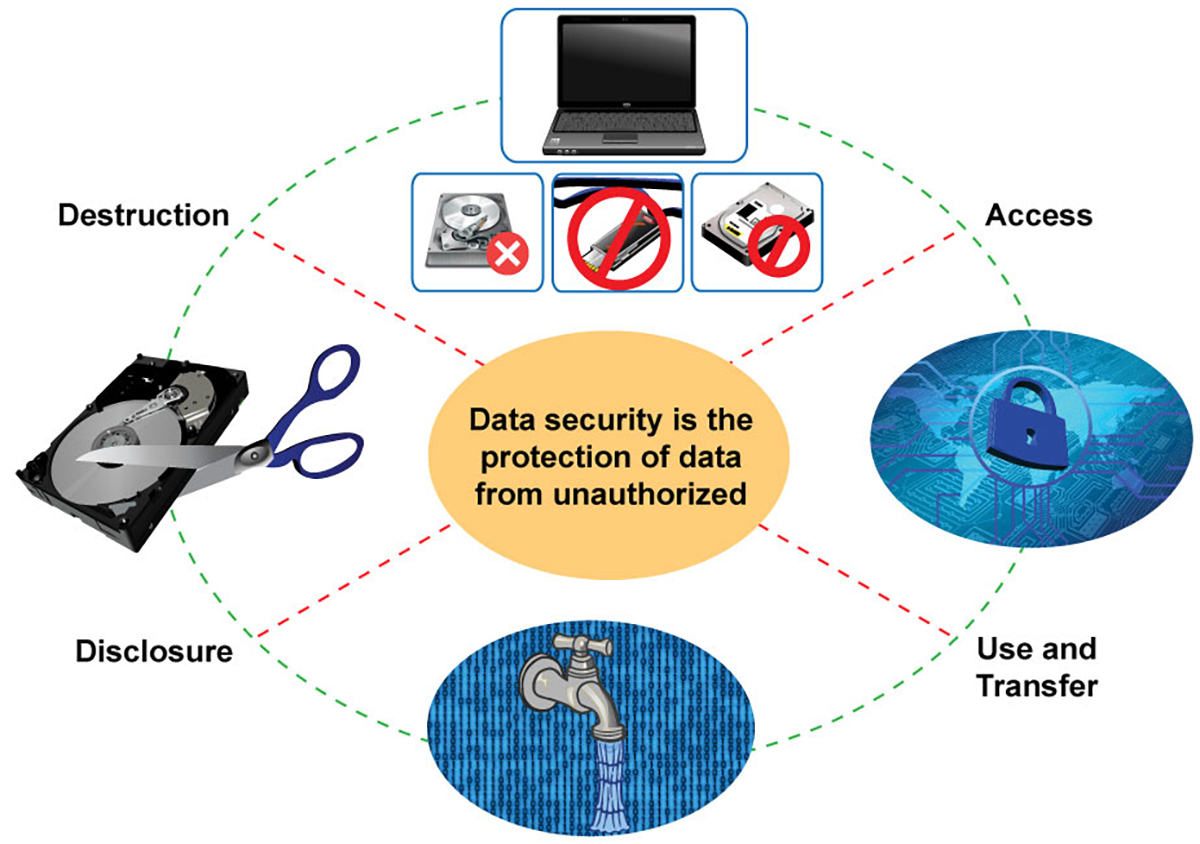The Importance of Effective Information Damage Practices in Shielding Sensitive Info and Ensuring Computer Protection
In an age where information violations are progressively typical, the significance of effective information damage techniques can not be overemphasized. Organizations face substantial threats when sensitive info is improperly dealt with, potentially causing unauthorized gain access to and extreme economic effects. Applying durable information devastation techniques not just alleviates these dangers however likewise aligns with legal compliance requirements, making certain that organizations copyright their online reputation and foster customer trust fund. Nonetheless, the concern stays: what specific techniques can be utilized to enhance these methods, and exactly how can organizations effectively integrate them right into their general cybersecurity framework?
Recognizing Data Damage
Recognizing information damage is vital in today's digital landscape, where delicate details can quickly be endangered. Reliable data destruction includes not just erasing data yet guaranteeing that information is irretrievable through extensive methods. This process is crucial for companies that manage confidential customer information, intellectual home, or internal records, as any kind of breach can lead to extreme monetary and reputational effects.
Information destruction incorporates various methods, including shredding physical media, degaussing magnetic storage space tools, and employing software-based services that overwrite information several times. Each method serves a specific objective and needs to line up with the level of sensitivity of the information being dealt with. Physical devastation is frequently favored for tough drives including extremely private information, while software methods might be sufficient for much less sensitive info.
Additionally, adhering to market standards and regulations, such as the General Data Protection Guideline (GDPR) or the Health And Wellness Insurance Coverage Transportability and Responsibility Act (HIPAA), is imperative for conformity and to reduce legal dangers. Organizations needs to establish a robust information damage policy, train employees on finest methods, and routinely investigate their treatments to make certain that all delicate details is disposed of safely and successfully.
Dangers of Inadequate Practices
Poor information destruction techniques subject companies to considerable threats that can have far-ranging consequences. When sensitive info is not effectively thrown away, it continues to be prone to unauthorized access, which can lead to data breaches and identification burglary. Such occurrences not just jeopardize the safety and security of individuals however also taint the organization's online reputation, causing a loss of consumer depend on and potential financial effects.
Additionally, regulative conformity is significantly strict in many sectors. Failing to stick to data destruction guidelines can lead to substantial fines and lawsuits against companies. These charges can strain funds and draw away attention from core business procedures.
Furthermore, the abuse of recurring data can bring about intellectual residential property burglary or business reconnaissance, threatening competitive benefits (data destruction). The impact of insufficient information devastation extends beyond immediate monetary losses; it can also result in long-term damages to brand name stability and market setting

Organizations need to identify that data safety is not exclusively about protecting against violations; it likewise encompasses the accountable monitoring of data throughout its lifecycle. Disregarding reliable information read here destruction procedures can have catastrophic effects, highlighting the necessity for durable steps to mitigate these dangers.
Ideal Practices for Information Devastation
Implementing efficient data destruction practices is vital for guarding delicate info and maintaining conformity with governing criteria. Organizations ought to adopt a multi-faceted approach to make sure that data is irretrievable, thereby protecting against unapproved access and potential breaches.
First, information should be classified based on sensitivity, allowing companies to apply suitable devastation approaches tailored to the level of danger. For digital data, making use of software-based data-wiping tools that adhere to sector requirements can successfully overwrite existing information. Physical devastation techniques, such as shredding or degaussing, are crucial for gadgets that save sensitive details, guaranteeing full elimination.
Developing a clear data retention plan is important, outlining the length of time different kinds of information ought to be retained before damage. Regular audits of data storage space systems are also necessary to determine unnecessary or out-of-date data needing elimination.
In addition, training employees on the importance of information devastation and the particular procedures to follow fosters a culture of safety within the organization. Finally, preserving documentation of information destruction processes provides accountability and supports conformity with internal policies and external guidelines. By sticking to these finest practices, companies can dramatically alleviate the threats connected with data direct exposure.
Legal and Compliance Factors To Consider
Failing to adhere to these policies can cause severe charges, including substantial penalties and reputational damage. Organizations needs to implement a durable information destruction plan that straightens with these lawful structures and provides clear guidelines on the proper techniques of data disposal, whether physical shredding or digital cleaning.
Furthermore, maintaining paperwork of data devastation tasks is vital for demonstrating conformity throughout audits or assessments. By prioritizing lawful and compliance factors to consider, companies can boost their information protection stance and foster count on with stakeholders and clients, eventually contributing to a try this website more secure information management atmosphere.
Benefits of Effective Data Destruction
Efficient data devastation methods expand past mere conformity; they offer considerable benefits to companies that prioritize them. By making sure that delicate details is irretrievably ruined, companies alleviate the threat of information breaches and the possible financial effects connected with them. This positive technique not just safeguards against unauthorized accessibility however likewise enhances the total reliability of the company in the eyes of customers and stakeholders.
Implementing robust her latest blog data devastation methods, such as physical devastation of storage space gadgets or sophisticated information wiping strategies, contributes to the conditioning of an organization's cybersecurity position. data destruction. It decreases the chance of intellectual residential or commercial property burglary and secures exclusive details, thereby preserving an affordable side in the market

Conclusion
In final thought, efficient data destruction practices are essential for securing sensitive info and boosting general computer system safety and security. Eventually, a commitment to durable data damage techniques fosters a society of obligation, thereby enhancing an organization's cybersecurity posture and preserving customer trust.
